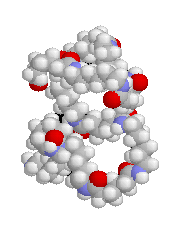Leading Uses of Polymers: Enhancing Everyday Products
Leading Uses of Polymers: Enhancing Everyday Products
Blog Article
Discovering the Varied Applications and Benefits of Polymers in Different Industries
Polymers, with their varied variety of residential or commercial properties and functionalities, have actually come to be vital in numerous industries, each reaping special advantages from their application. From improving safety and security and efficiency in the auto industry to reinventing medical tools in the healthcare market, polymers play an essential function.
Automotive Market Applications
Polymers play an essential function in enhancing the efficiency and resilience of different elements within the auto sector. These flexible products are thoroughly utilized in the production of different parts, ranging from interior components to under-the-hood applications. One prominent usage of polymers in the auto industry is in the production of lightweight elements. By replacing standard steel parts with polymer-based choices, cars can attain better fuel performance without compromising on stamina or safety.

Healthcare Sector Benefits
In numerous healthcare applications, the benefits of using polymers are widely recognized for their varied series of useful buildings. Polymers play a crucial role in the medical care sector as a result of their convenience, biocompatibility, and cost-effectiveness. Among the main advantages of polymers in healthcare is their capability to be tailored to particular demands, such as versatility, durability, and biodegradability, making them perfect for a wide variety of clinical applications.
Polymer-based materials are thoroughly used in medical tools, such as catheters, implants, prosthetics, and drug delivery systems, as a result of their biocompatibility and capacity to imitate natural cells. These materials can minimize the threat of sensitive responses or beings rejected, boosting individual safety and security and outcomes. In addition, polymers are lightweight, making them appropriate for wearable medical tools and making certain individual comfort.
Additionally, polymers allow the growth of cutting-edge therapy approaches, such as hydrogels for tissue engineering and nanocomposites for targeted drug distribution. Their ease of processing and sanitation makes them crucial for preserving high requirements of hygiene in healthcare setups. On the whole, the diverse benefits of polymers add dramatically to advancements in medical technology and person treatment.
Ecological Benefits of Polymers

In addition, polymers can add to power financial savings due to their light-weight nature. In industries such as transport, lightweight polymer materials can help in reducing gas usage and greenhouse gas exhausts. Additionally, polymers can make it possible for the development of energy-efficient products such as insulation materials that boost power conservation in buildings.
In addition, polymers play a crucial function in decreasing water air pollution. The use of polymer-based filtering systems can properly get rid of contaminants and impurities from wastewater, securing water sources and environments. On the whole, the ecological advantages of polymers make them beneficial possessions in advertising sustainability and eco-friendly practices throughout different industries.
Polymers in Electronics and Technology
Taking into consideration the increasing demand for ingenious and lasting services in modern markets, the integration of sophisticated polymer innovations in the realm of electronic devices and innovation has become a pivotal technique for driving effectiveness and performance. Polymers have revolutionized the electronics industry by making it possible for the manufacturing of lighter, more flexible, and resilient electronic gadgets. From smart devices to clinical tools, polymers play an important duty in boosting item style and capability.
One significant advantage of polymers in electronics is their insulating homes, which help protect fragile digital components from environmental aspects and electric disturbance. Additionally, polymers are crucial in the development of adaptable displays, wearable modern technology, and printed electronics, supplying limitless opportunities for developing smart and interconnected web tools.
Additionally, the usage of polymers in electronic product packaging has resulted in developments in miniaturization and thermal monitoring, enhancing the general efficiency and integrity of digital systems. As technology remains to evolve, the adaptability and versatility of polymers will certainly drive even more technology in the electronic devices market, shaping the future of technology.
Duty of Polymers in Building And Construction and Facilities
The combination of advanced polymer products in building and framework jobs has changed the way structures are designed and constructed in modern-day times. Polymers use countless benefits in the building and construction market because of their convenience, sturdiness, and cost-effectiveness. One key duty of polymers in building and construction is their usage in coverings and sealants, giving security versus ecological variables such as wetness, UV radiation, and deterioration. Furthermore, polymers are made use of in the manufacturing of light-weight and high-strength composite materials, enhancing the architectural honesty of structures while minimizing overall weight.
Additionally, polymers play a critical duty in sustainable building methods by making it possible for the advancement of energy-efficient frameworks. Insulating materials made from polymers assist regulate indoor temperature levels, minimizing the need for heating and cooling down systems and ultimately decreasing power usage. The use of polymer-based composites in facilities tasks such as bridges and roadways improves their longevity and lowers upkeep expenses. Generally, the consolidation of polymers in building and construction and facilities displays their substantial influence on modern engineering practices.
Verdict
In verdict, polymers play an essential duty in numerous sectors such as auto, medical care, environmental, electronics, and building. From enhancing gas effectiveness in vehicles to enhancing medical tools, polymers provide various advantages.
Report this page